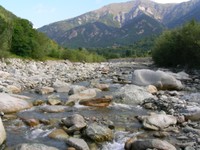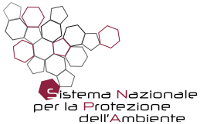Different views of a single resource's future
Climate change already has visible effects in the Alps, especially through temperature increases: changes in the hydrological cycle and decrease in snow and glacier cover are observed. Water shortages and more frequent extreme events are to be expected.
Considering these threats, different views of alpine rivers’ future are drawn. The Alpine Convention states that in the Alps, “hydropower generation can be considered to be the main reason for water abstraction (…). This results in the fact that a significant share of river stretches fails to meet the good ecological status” (Water and water management issues: Report on the State of the Alps,2009).
EU directives, contradictory objectives?
On the one hand, the Directive on Electricity Production from Renewable Energy Sources obliges EU member states to increase the share of renewable electricity production, in order to reduce greenhouse gases emissions. The aim was to reach a “22,1% indicative share of electricity produced from renewable energy sources in total Community electricity consumption by 2010”.
On the other hand, the Water Framework Directive (WFD) obliges EU member states to reach and maintain a “good” ecological status of water bodies by 2015. The WFD refers to river continuity as a “quality element” to assess the ecological status, and underlines the need for “control on abstraction and impoundment in order to ensure the environmental sustainability of the affected water systems”.
For some, the priority is to protect and restore rivers ecological status, which means reducing human activities. For others, rivers are a vital source of income and local development, thanks to the many economic activities they are home to.
 |
Chisone river (Italy) Decision makers must find a balance between hydropower and river ecosystems needs; between the priorities of river users and those of river defenders. |
| © Regione Piemonte |
SHARE shapes a thin path: sustainable hydropower. The project provides methodological and practical tools to promote this approach in the Alps.


